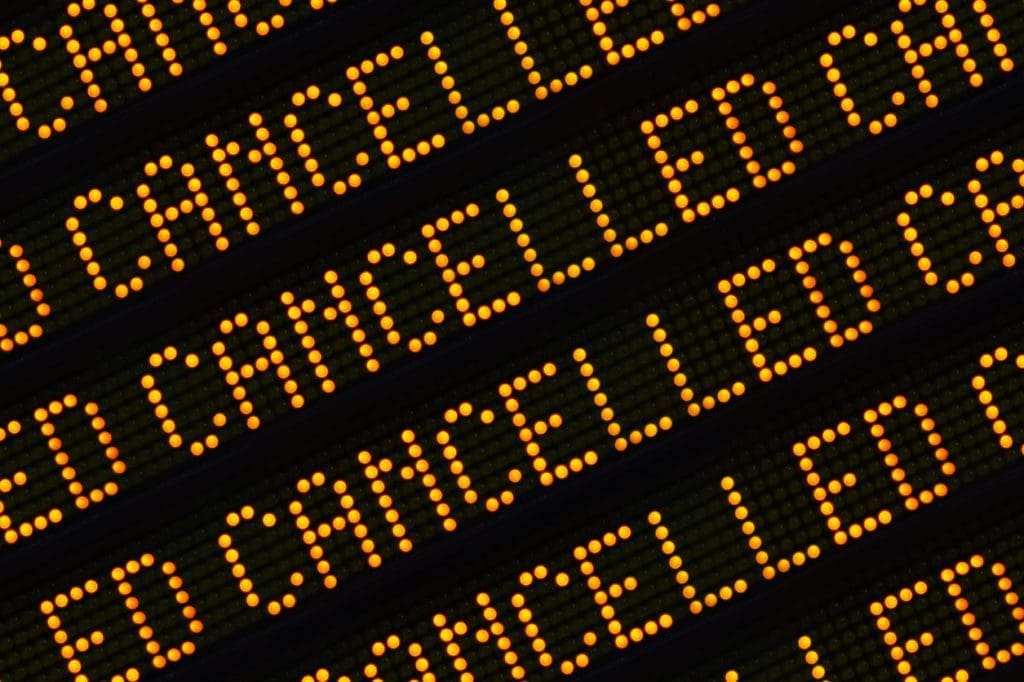Train drivers at nine rail companies to stage a one-day strike next month in the worsening dispute, causing travel chaos across the country.

Aslef has announced its members will walk out on Saturday August 13, saying the firms failed to make a pay offer to help members keep pace with increases in the cost of living.
Drivers are already set to strike this Saturday at seven companies and on Wednesday Aslef members at two more train operators voted overwhelmingly for industrial action.
The announcement was made as strikes by members of the Rail, Maritime and Transport union and Transport Salaried Staffs Association crippled services on Wednesday, with only around one in five trains running and some areas having none at all.
Mick Whelan, general secretary of Aslef, said: “Strikes are always the last resort.
“We don’t want to inconvenience passengers – our friends and families use public transport too – and we don’t want to lose money by going on strike but we’ve been forced into this position by the companies, who say they have been driven to this by the Government.
“Many of our members, who were the men and women who moved key workers and goods around the country during the pandemic, have not had a pay rise since 2019.
“With inflation running at north of 10% that means those drivers have had a real-terms pay cut over the last three years.
“We want an increase in line with the cost of living – we want to be able to buy, in 2022, what we could buy in 2021.
“It’s not unreasonable to ask your employer to make sure you’re not worse off for three years in a row. Especially as the train companies are doing very nicely, thank you, out of Britain’s railways – with handsome profits, dividends for shareholders, and big salaries for managers – and train drivers don’t want to work longer for less.
“Wage rises aren’t fuelling inflation. Excess profiteering is, but the Government isn’t asking companies to cut profits or dividend payments to help manage inflation. Wages are chasing prices, not putting them up.
“We don’t see why we should forego an increase in salary to keep pace with inflation and help the privatised train companies make even bigger profits to send abroad.”
Drivers at Avanti West Coast and CrossCountry voted by more than 9-1 to go on strike, it was announced on Wednesday.
They will strike on August 13 alongside drivers at Greater Anglia, Great Western Railway, Hull Trains, LNER, London Overground, Southeastern and West Midlands Trains.
A row broke out between unions and the Transport Secretary Grant Shapps after he laid out plans to curb industrial action, including stopping coordinated industrial action, limiting picketing and having a cooling off period after strikes.
He told the Daily Telegraph: “I’m looking at banning strikes by different unions in the same workplace within a set period. We should also place an absolute limit of six pickets at points of Critical National Infrastructure, irrespective of the number of unions involved, and outlaw intimidatory language.
“Ballot papers should also set out clearly the specific reason for industrial action and the form of action to be taken. In addition, before strike dates are announced, employers should have the right to respond to the issue cited on the ballot paper.”
Unite general secretary Sharon Graham said: “If Grant Shapps had his way we would all still be in the workhouse.”
Unison general secretary Christina McAnea said: “The Government wants to turn the clock back to Victorian times when children were sent up chimneys and working people ruthlessly exploited.”
A Rail Delivery Group spokesperson said: “The action announced by the Aself leadership shows a cynical approach to talks, a total disregard for passengers and is putting everyone’s summer plans at risk. This action will bring the total number of strike days on the railway to 10, disrupting plans in June, July and August.
“Like any public service we have to change with the times, and it’s only by making necessary reforms that we can give our people a pay rise.
“Now is not the time for further strikes, so we urge the Aslef leadership to resume talks to reach a deal that is fair to staff and taxpayers, and which secures a better, safer and more affordable railway.”
A Department for Transport spokesperson said: “It’s incredibly disappointing Aslef bosses have announced more destructive strike action, particularly when it has become clear they have no interest in holding constructive talks with the industry.
“Train drivers, such as those Aslef represent, earn, on average, just under £60,000 – more than twice the UK average and significantly more than the very workers who will be most impacted by these strikes despite stumping up £600 per household to keep the railway running throughout the pandemic.
“Our railway is in desperate need of modernisation to make it work better for passengers and be financially sustainable for the long term. We urge union bosses to reconsider this divisive action and instead work with their employers, not against them, to agree a new way forward.”


